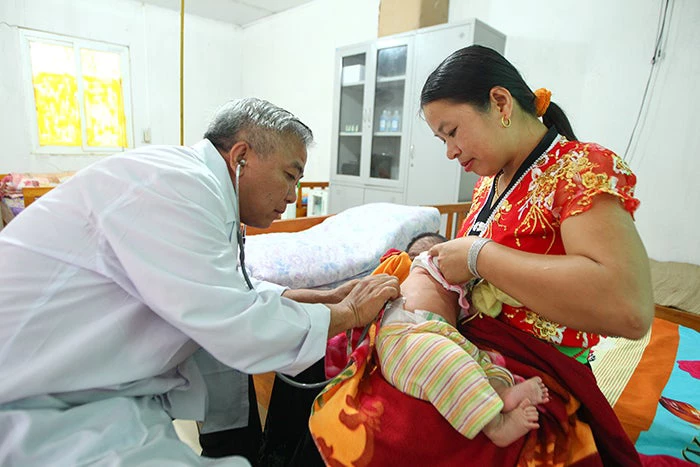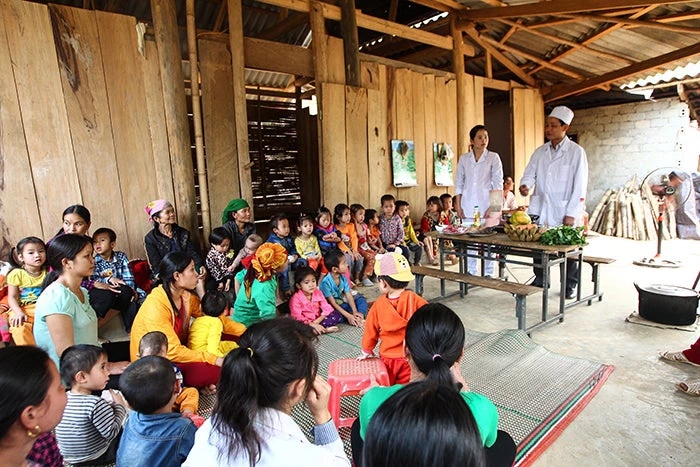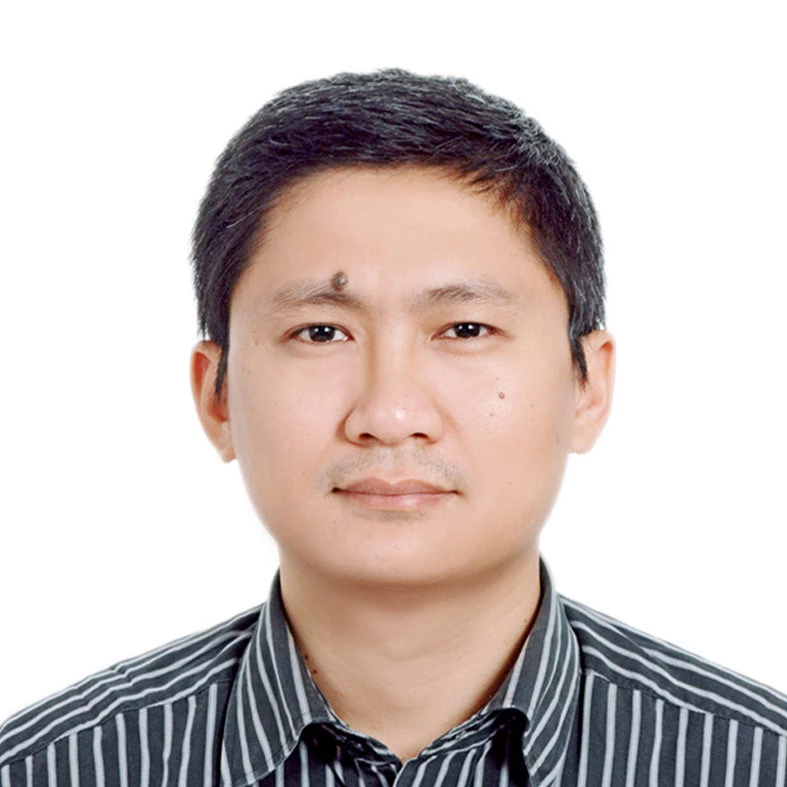On a spring morning in 2016, Mrs. Dinh Thi Son of the Thai ethnic minority group brought her two month old baby to the Trung Son Hydropower Project construction site for medical services. Why go to a construction site? Because it has a health center that’s fully equipped with medical devices, well stocked with medicines, an ambulance, and doctors and nurses who provide healthcare services 24/7 for workers and local people alike.
In the past, Mrs. Son and villagers like her would have had to travel 60-70 km (or 40 miles) across mountains to get to the town of Mai Chau for medical care. With a health center now conveniently located near their village, it has become safer and easier for them to get proper medical services.

Such quality health services are initiated and managed by those who are constructing the hydropower plant. The Trung Son Hydropower Project, which is implemented by the Electricity of Vietnam (EVN) and supported by the World Bank, is one of the first large scale infrastructure projects in Vietnam to mainstream health services into its activities with clear objectives in improving workers and public health conditions.
Three lessons can be learned in implementing a health program in the framework of an infrastructure project:
- Developing Health Impact Assessment (HIA): In the preparation phase, EVN assessed potential health impacts of the project to workers and local people such as work injuries, sexually transmitted diseases, and sanitation, to know what the needs are and how they can be addressed. They identified disease patterns and recognized the limitations of the local health system in the project area, where the country’s most disadvantaged citizens reside. Based on evidence from the HIA, the company selected various solutions to maximize health co-benefit of this infrastructure project (access to health services, water and sanitation, etc.) and minimize adverse health impacts.
- Prevention is better than treatment: Workers receive annual health check-ups, training on labor safety and first-aid, and preventive health services such as the malaria and HIV/AIDS prevention. Their dormitories are supplied with clean water and have proper sanitation facilities. Resettlement areas also have clean water supply, proper sanitation facilities, as well as hygienic latrines. There are also awareness-raising campaigns on water and sanitation, disease prevention and better nutrition in the communities. Stunted children under the age of five receive supplemental nutrition.
Mothers and caregivers in Trung Son Commune attend a workshop on nutrition provided by local health workers. Photo: Nguyen Khanh/World Bank - Collaboration with local health systems: To ensure that the health program will continue after the project is completed, the Trung Son Hydropower Company is working closely with the local health authorities in implementing its health promotion plan and helping improve the capacity of local health clinics. Priority health problems have been identified and the company has provided support to build or renovate commune health centers and provide them with essential medicine and equipment. The company collaborates with district health centers to provide annual training for health professionals at the commune and the village levels.
The Trung Son Hydropower Project will not only generate electricity to light up remote villages, but also generate healthcare services to brighten the lives of villagers like Mrs. Son and her children.



Join the Conversation